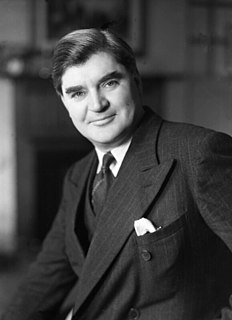A Quote by Friedrich Nietzsche
Wherever progress is to ensue, deviating natures are of greatest importance.
Quote Topics
Related Quotes
As an element in human progress, the right of private property, in importance, has taken first and almost only place in the current systems of law and of political economy. While admitting its great importance, we cannot conceal the fact that the writers on those subjects have wholly failed to distinguish between its use and its abuse, or to recognize its rational and equitable limits.
The greatest achievement is selflessness.
The greatest worth is self-mastery.
The greatest quality is seeking to serve others.
The greatest precept is continual awareness.
The greatest medicine is the emptiness of everything.
The greatest action is not conforming with the worlds ways.
The greatest magic is transmuting the passions.
The greatest generosity is non-attachment.
The greatest goodness is a peaceful mind.
The greatest patience is humility.
The greatest effort is not concerned with results.
The greatest meditation is a mind that lets go.
The greatest wisdom is seeing through appearances.
Wherever snow falls, or water flows, or birds fly, wherever day and night meet in twilight, wherever the blue heaven is hung by clouds, or sown with stars, wherever are forms with transparent boundaries, wherever are outlets into celestial space, wherever is danger, and awe, and love, there is Beauty, plenteous as rain, shed for thee, and though thou shouldest walk the world over, thou shalt not be able to find a condition inopportune or ignoble.









































